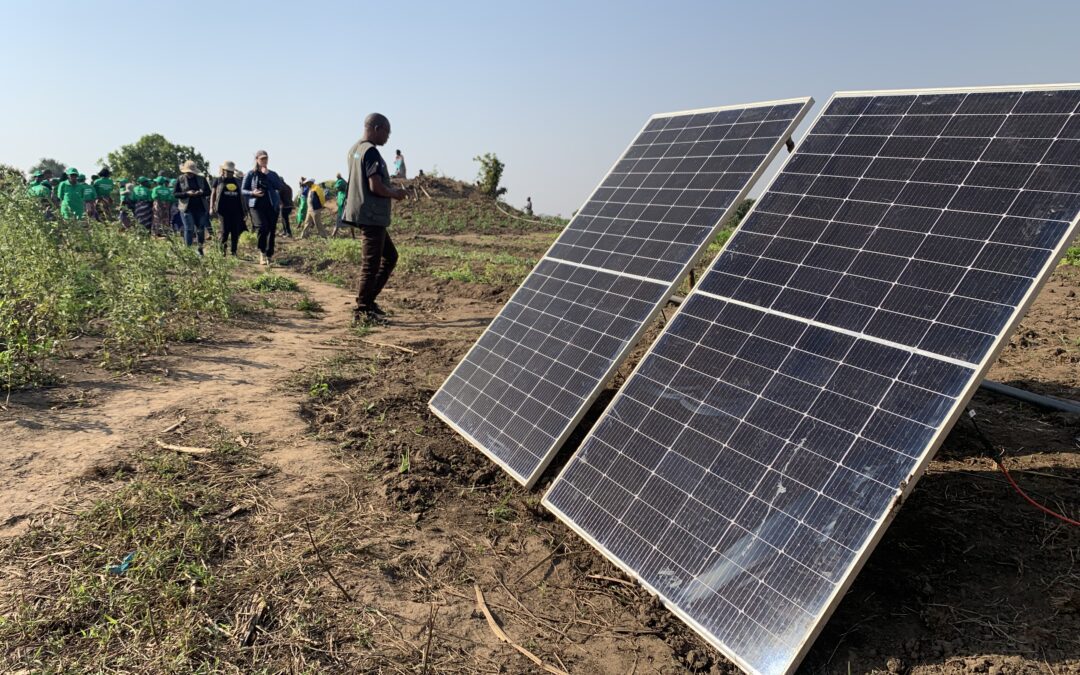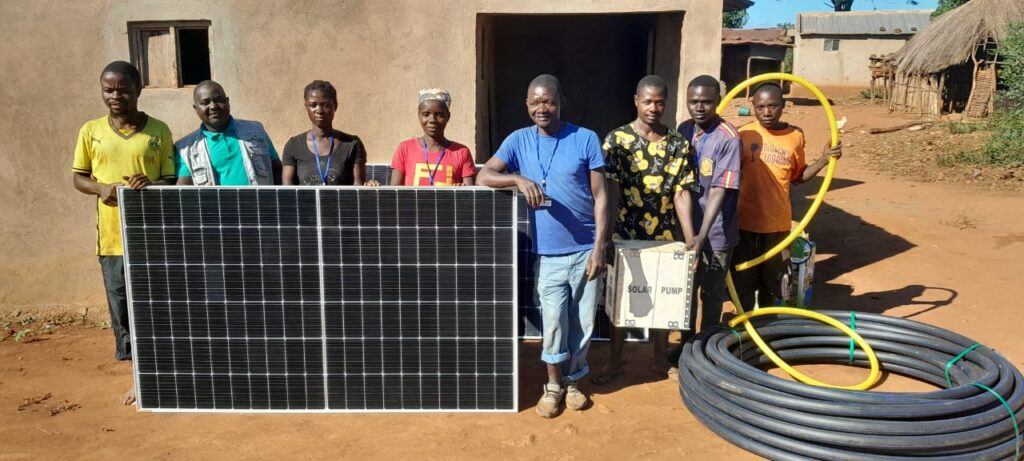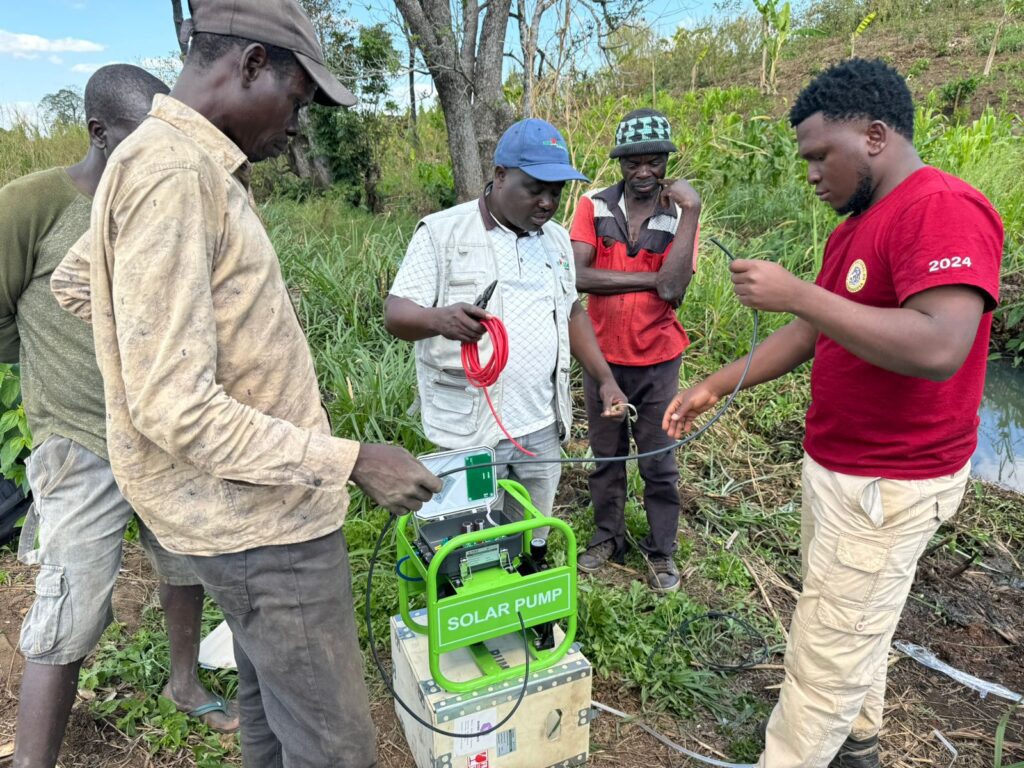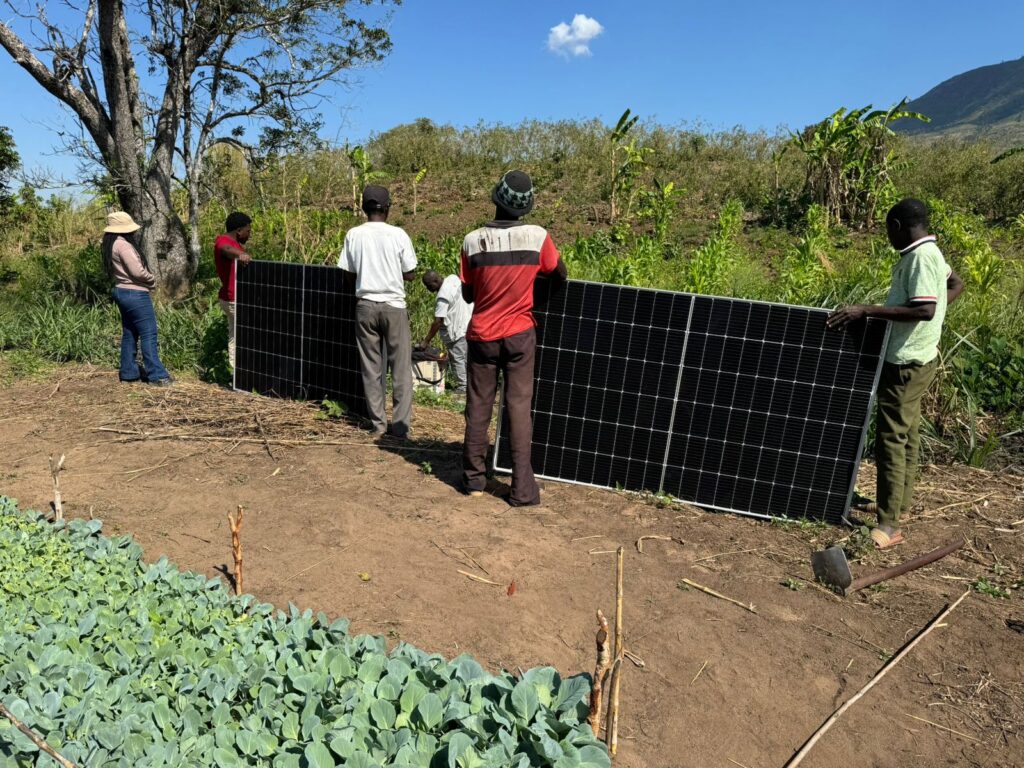Water shortages are a challenge for Mozambican farmers irrigating crops. Solar irrigation systems one way to boost climate resilience, agricultural productivity and increase food security.
Farmers are adding strength to their sustainable agriculture practices through solar power. The project, funded by the Embassy of the Netherlands, is a collaborative effort between the Gorongosa Restoration Project, Resilience Now, and local communities under the Gorongosa Sustainable Livelihoods Development Program.
Over 56 solar-powered systems distributed across six districts within the Sustainable Development Zone are now supporting 1,260 families. Each setup includes two 450-watt solar panels, a motor pump, and pipes to ensure water reaches all parts of each farm equitably. These pumps can cover up to one hectare daily, delivering 6,000 liters of water per hour while consuming 550 watts.
Access to reliable water allows farmers to diversify their crops, which strengthens food security and income stability. By providing a consistent water supply despite unpredictable weather, these systems help communities adapt to climate change and increase production.
Each solar irrigation system costs around 90,000 Meticais (about $1,200 USD), with communities contributing 30% of the cost, fostering sustainability and local engagement in improving living standards. These initiatives equip communities to better manage resources, promoting self-sufficiency and resilience while contributing to social and economic development.






